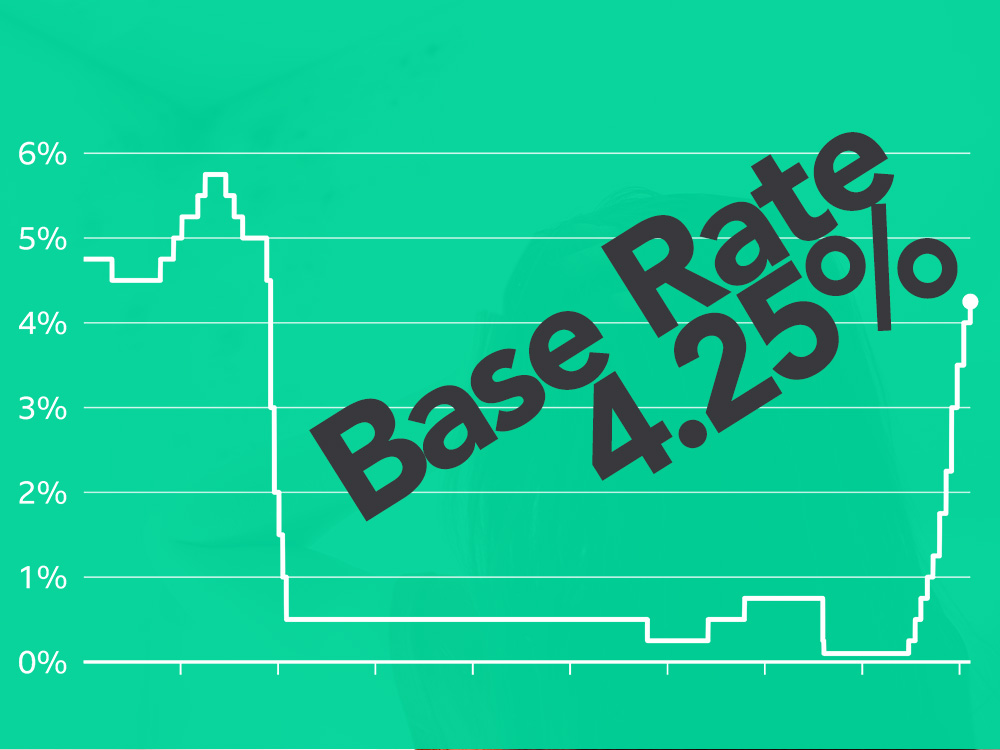Crisis looms for landlords and renters
Renters and landlords are facing a crisis as the base rate is expected to level off at 4.5% this year. What are the anticipated implications of the further decrease in property prices and mortgage approvals?

This increase could significantly impact landlords, renters, the UK housing market and the economy. Our UK Landlord report discovered 44.66% of landlords would look to sell their property if rates reach 4.5%, while 46.25% of renters are concerned or strongly concerned about their property security.
As Stephen Clark, from Finbri, explains, “Rates continue to increase and landlords are worried. The ongoing rate rises will increase any borrowing be it buy-to-let mortgages or bridge finance, and without increasing rental prices, it will become harder for landlords to make a profit.
"And whilst that might not concern those that aren't landlords, if landlords can no longer make a profit and owning a BTL property doesn't make financial sense, more and more will leave the market.
“For renters, the impact could be even more severe. There is already a shortfall of properties available to renters, causing a frenzied market. With more and more landlords becoming increasingly likely to leave the buy-to-let market, with fewer properties available, rents are likely to go up, making it harder for renters to pay their bills.
"The UK housing market is reliant on landlords and tenants, if more and more landlords sell up, it will be a significant issue for the economy.”
Interest rates are rising - but does this equate to lower house prices?
When interest rates rise, borrowing money costs increase, affecting the property market. In general, an increase in interest rates leads to a decrease in the demand for housing and a reduction in house prices.
However, this is not always the case. For example, when the economy is strong, an increase in interest rates may not necessarily lead to a decrease in house prices. This is because when the economy is doing well, more people are willing to buy homes as the demand for housing increases. This can lead to an increase in house prices despite higher interest rates.
An increase in interest rates does not always equate to lower house prices. Ultimately, the state of the economy is a more significant factor in determining house prices than the level of interest rates. Therefore, when the economy is doing well, a rise in interest rates may not necessarily lead to a decrease in house prices.
Implications for Landlords
Base rate increase: The proposed 4.5% increase could seriously affect landlords. With 44.66% of landlords stating that they would likely sell their property if rates reach this level, this could cause significant disruption in the housing market. This could increase rental prices as landlords look to recoup their losses from the rate increase. In addition, the market could become flooded with properties as landlords look to quickly offload their assets, leading to a decrease in rental prices.
House prices decreasing: The decrease in house prices could also impact landlords. As property prices decline, landlords may need help to profit from their properties. This could lead to landlords reducing the length of their tenancies and raising rent prices as they look to return on their investment.
Implications for Renters
Mortgage approvals fall: With fewer mortgage approvals, it could become more difficult for tenants to purchase their own homes. 75.92% of UK renters don’t believe they’ll be able to own a property within the next 12 months, with 53.82% unable to save enough for a deposit, 32.37% believe mortgage rates are too high and 22.76% are unable to obtain a mortgage from a lender.
Further decline in property conditions: Landlords may be less willing to invest in repairs and maintenance if their profits are negatively affected by the rate increase. Finbri’s UK Renters’ Report found that renters had experienced the following:
- 11.59% faced the threat of eviction
- 33.73% faced problems with damp or mould
- 24.98% faced poor property conditions
- 12.89% felt unable to complain about poor conditions for fear it may lead to eviction
- 12.69% felt unable to complain about poor conditions for fear it may lead to rent increases
Base rate increase: With 44.66% of landlords stating that they would be likely to sell their property if rates increased to 4.5%, it’s no surprise that 46.25% expressed concern or strong concern about their property security.
Final thoughts
Landlords could find it challenging to profit from their investments, potentially leading to higher rent prices and shorter tenancy lengths. Renters could face higher rent prices, potential eviction threats and poorer property conditions.
The proposed 4.5% rate increase could seriously affect landlords and renters. It is clear that both parties need to be prepared for the potential consequences of this rate increase and any other subsequent changes to legislation, such as the Renters Reform bill, EPC requirements and Stamp Duty changes.
Bridge To Let
We offer rapid bridge to let finance enabling landlords & investors take advantage of BTL residential property opportunities to extend their portfolio.
Discover More





